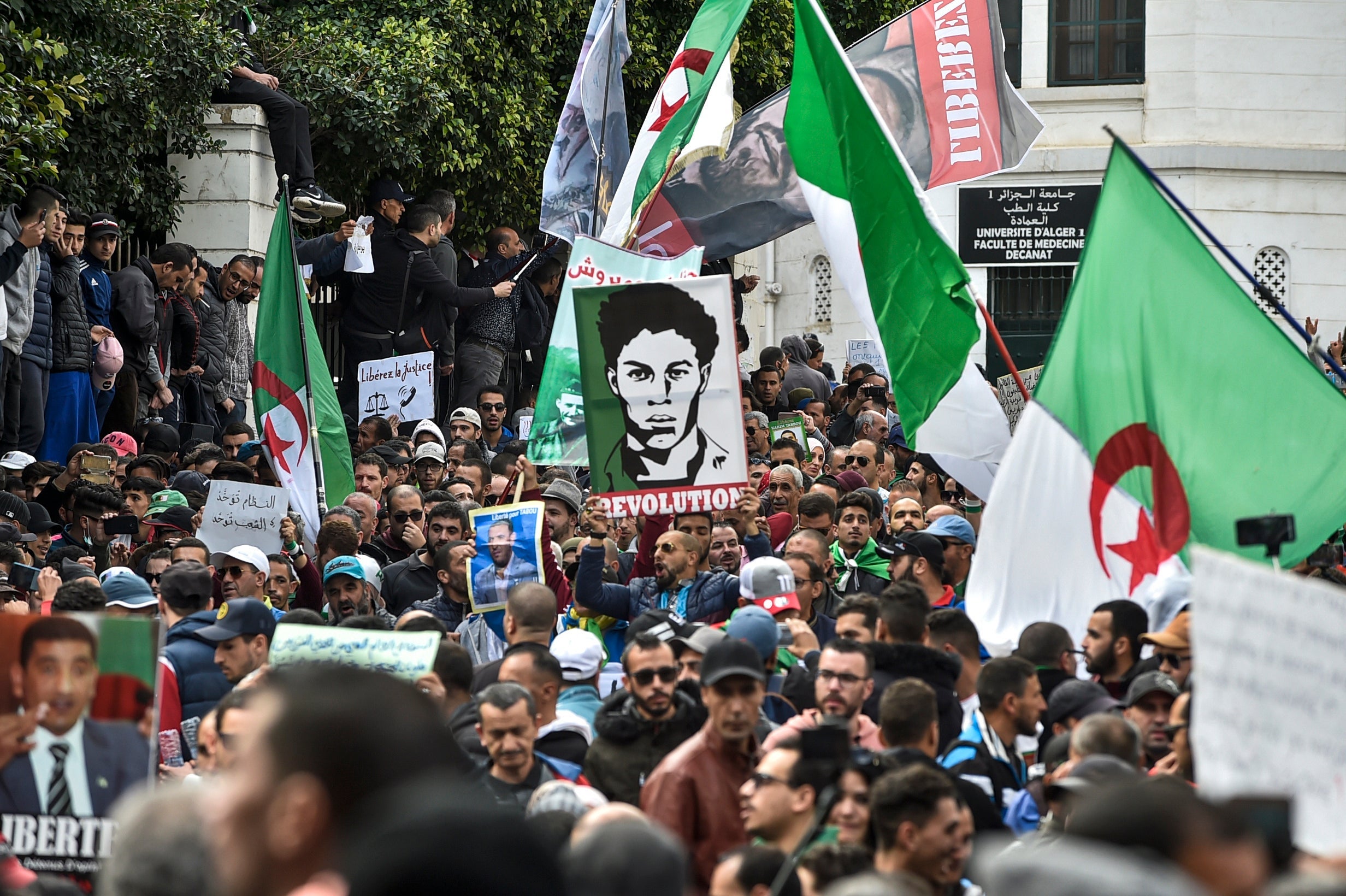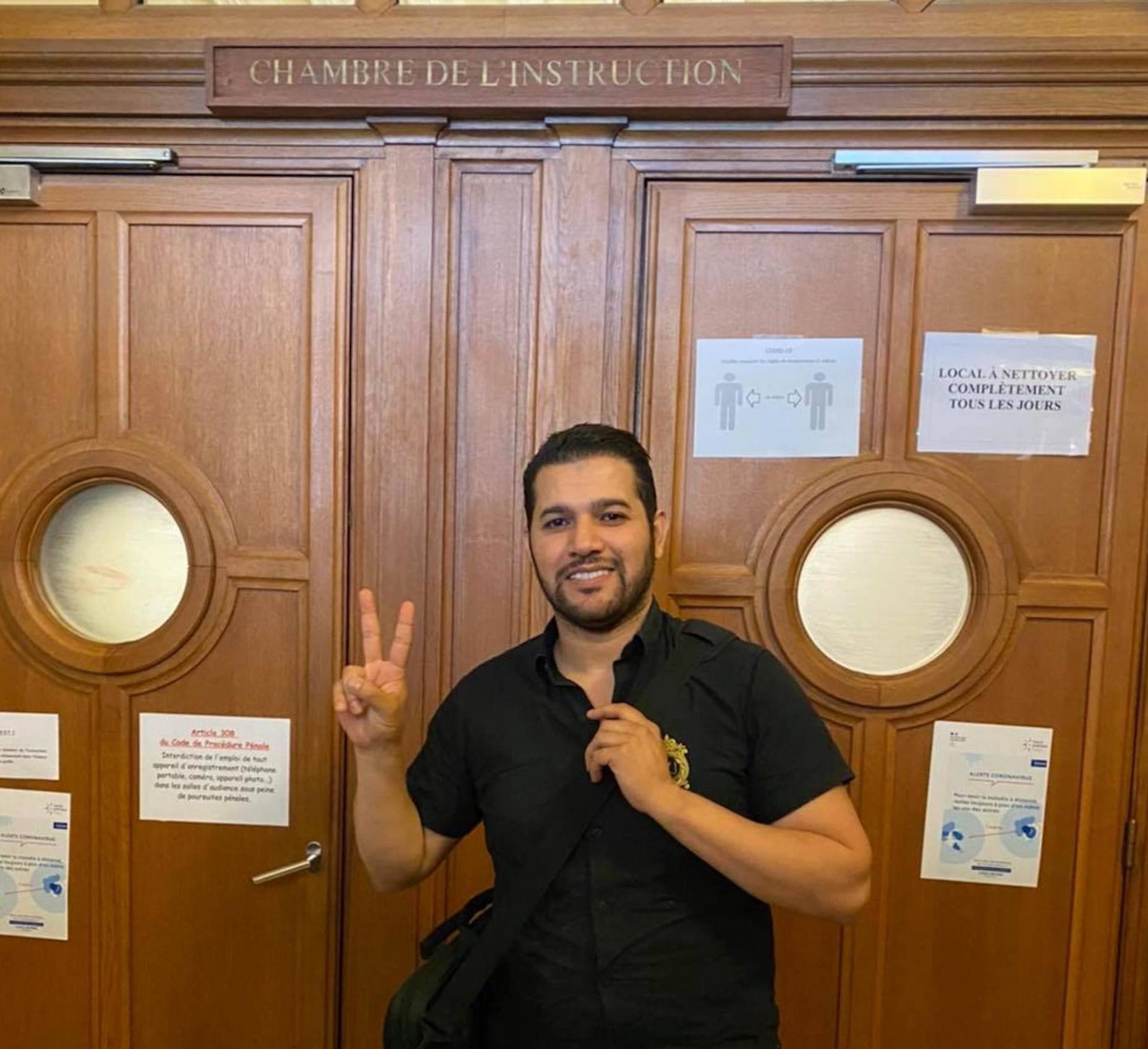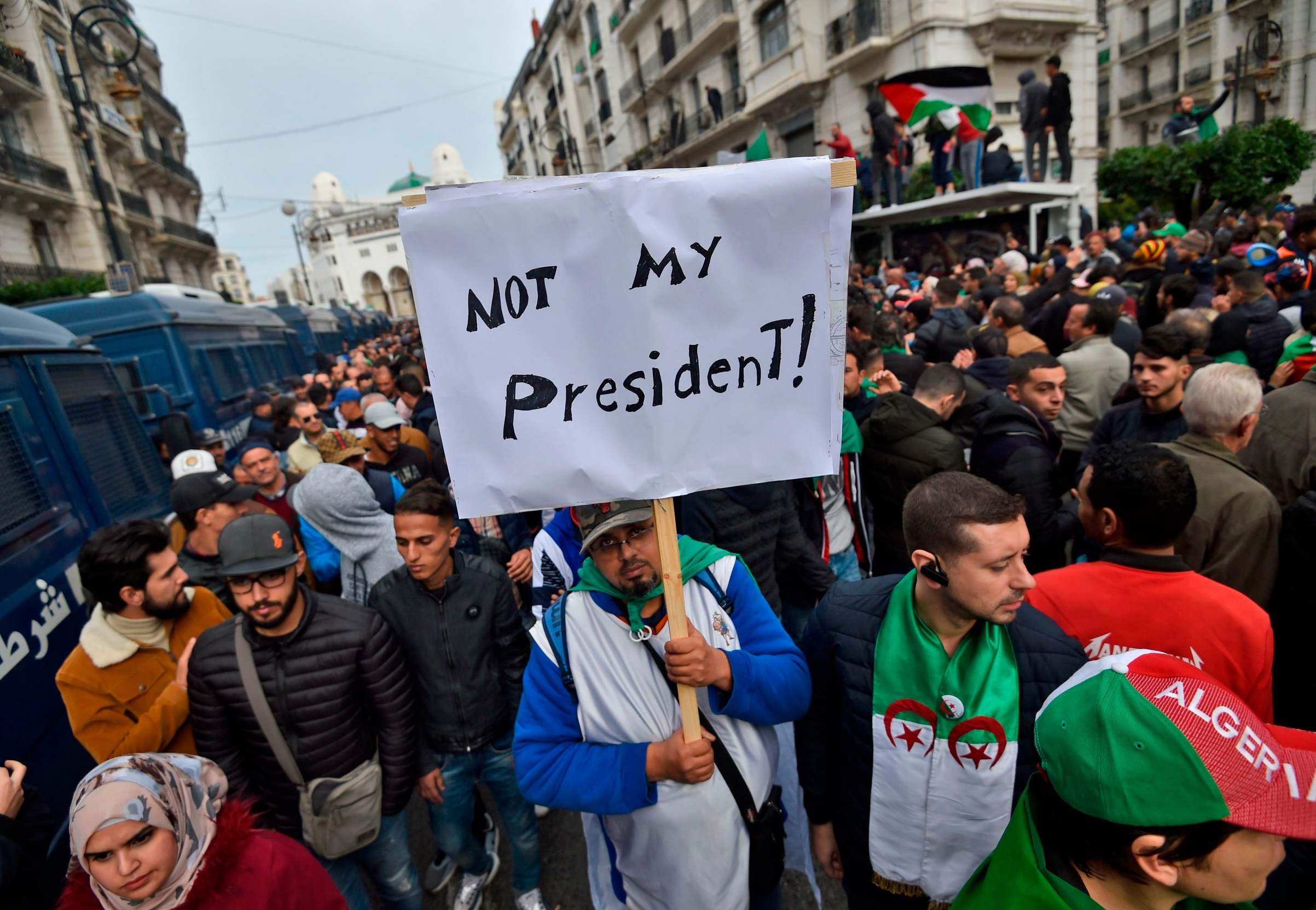How one man single-handedly exposed Algeria’s systemic corruption – with nothing but a laptop
His leaks revealed the dirty money and deception at the highest levels – and helped fuel a national revolution, as Borzou Daragahi reports


With just a high school education, a man from a little town in the middle of nowhere began dredging up documents alleging corruption in his native land and began posting them on Facebook.
Living in France and operating under the name “Amir DZ”, he built a following of millions in the north African nation of Algeria and across the Algerian diaspora, drawing even more leaks of documents about the generals, and their children, ruling the country. His postings and video denunciations contributed to the uprising against the regime that felled the country’s longtime president, Abdelaziz Bouteflika.
But for Amir Boukhours, the heady rise has come at a cost. The regime arrested his brother and abused his elderly father back home in the southwestern Algerian town of Tiarat. Facebook shut down his accounts, responding to complaints of privacy violations. And now the 37-year-old is battling against attempts by the regime to extradite him back to Algiers to face severe criminal charges.
“I didn’t choose to do any of this. I was forced to do it when I saw what people were going through back home,” Boukhours says in an interview from France, where he lives and is facing court proceedings. “I found myself in this battle. Once I started, I couldn’t back away.”
Boukhors’ leaks offer a rare window into the alleged corruption of Algeria’s ruling elite. They include documents and videos suggesting that the offspring of the military officers who have ruled the oil and gas-rich country with an iron first have bought massive properties in Europe and lead opulent lives as much of the country wallows in poverty and despair.
But his tale offers a lesson both on the potential and the pitfalls of social media activism at a time of societal and political upheaval and uncertainty.
A former repairman who was stuck in his small hometown, he says poverty and a lack of opportunities finally drove him to Turkey in 2015, where he was among those who took a rickety seacraft across the Aegean Sea, before walking through the Balkans and central Europe in the flood of migrants that year. He wound up in Germany, and eventually made his way to France, which is a second home for largely francophone Algerians.
He says he began researching documents online about five years ago as a hobby, out of anger with the regime and as a way of dealing with the trauma of his harrowing migration.
“I saw young people dying in the sea trying to cross to Europe and the officials’ sons were enjoying the money of these people,” he says.
The first documents he published in 2015 concerned the daughter of former Algerian prime minister Abdelmalek Sellal, showing that she owned a multimillion-dollar property in Paris and a share in a London property company worth millions of pounds. He posted the documents on Facebook. It sparked a sensation in Algeria, where proof of corruption among senior officials was rare. The politician was eventually arrested and tried on corruption charges, and his daughter is on the run.
“It was my own research,” he says.

More leaks came his way. He says he started getting dossiers by judges and prosecutors in Algiers. One document showed the Algerian army using money for the procurement of military aircraft to lease private jets from a well-connected civil aviation firm.
Another document suggested that a leading general was skimming money off a $3m contract (£2.3m) for teargas with Brazilian defence contractor Condor.
Yet another showed that Fares Sellal, son of the former prime minister, had managed to secure the marketing contract for all Mazda cars sold in Algeria. Another general’s son was exposed as a partner in several companies, including some linked to a major drug dealer now in prison.
Other documents showed generals carting huge sums of money out of the country, with one officer alone transferring tens of millions of dollars into personal accounts.
“Once I posted that first document, people started sending me more documents,” he says. “I broke the taboo.”
In total, he posted 2,000 documents before Facebook shut him down in 2018.
He also started receiving photos and videos of the exclusive gated community in Algiers where the powerful and their families live.

“It’s like a different Algeria inside Algiers,” he says. “It’s like a paradise, and they have special guards protecting it. There are thousands of people living there. I wanted to expose how the regime is living and how the poor people are living.”
But the regime fought back. His brother was imprisoned in 2018 on dubious charges in an attempt to put pressure on him. Dozens of the gendarmerie swarmed his father’s home, traumatising the 83-year-old.
Algerian television channels began smearing Boukhors. Those who posted selfies with him after meeting during trips to France were detained. He has already been tried and sentenced in absentia to three years in prison on charges of extortion and defamation.
The Algerian embassy in London did not respond to a request for comment, but in response to an inquiry by a UN special rapporteur, Algiers’ permanent mission to the international body said it had detained Boukhors’ brother on suspicion that he was benefiting from the alleged blackmail scheme, for which it has offered no proof.
Boukhors denies ever taking or giving any money related to his documents. In fact, he has accused regime emissaries of offering him bribes to stop the leaks, a proposal which he rejected. “I never deal with money,” he says.
In addition to the criminal allegations, all of his pages were suddenly removed from Facebook. The director of the pro-regime television channel Ennahar boasted that he personally put pressure on Facebook to remove them.
“The page of the traitor to his country and religion Amir Boukhors was closed after I personally filed several official complaints to Facebook’s management, due to the repeated attacks on me, on my family’s honour and on Ennahar,” the media mogul Anis Rahmani said in a Facebook post. “I support freedom of expression, but insulting men is illegal.”
Facebook acknowledged that it had removed Boukhors’ main page and certain posts for violating its terms, specifically for violating privacy rules and other community standards, but insists it is not at the behest of any government.
“We want Facebook to be a place where people can freely express themselves and talk openly about the issues that matter to them,” a spokesman told The Independent. “In this case, we have not banned this person from having a presence on our platform, but we have previously removed content and a page adminned by this individual for repeatedly violating our rules.”
Last year a small group of protesters rallied in front of Facebook’s Paris headquarters against the closure of Boukhors’ pages.
Everyone has a goal in life. My goal is to expose these people that were the reasons for me and another 10 million other people to leave the country
In an attempt to sow confusion, the Algerian authorities, or those working with them, have also set up dozens of fake Amir DZ accounts in what Boukhors says is an attempt to draw out and punish leakers.
Boukhors has rebuilt a Facebook page, and now has some 700,000 followers. He has also set up a page on subscription platform Patreon. But he is still battling the regime’s attempts to ship him back to Algeria on seven arrest warrants. Last month, he spent a day in jail after French authorities had him arrested at Algeria’s request.
Boukhors has his critics, even among supporters of the uprising against the ruling elite. They say he was used by the powerful in their factional wars against each other, with selective leaks meant to weaken one group over another.
“You cannot have such docs without having a strong insider,” says one journalist. “He could have been used, as there are so many cracks in the system. Thinking he got all of this information alone while fighting against Algerian generals would be naive.”
Another scholar specialising in Algeria described Boukhors as a showboat “more like an Algerian Kanye West” than an Algerian Julian Assange.
But the journalist acknowledged that Boukhors “has an audience in Algeria who believes he is a true hero”.
And the Algerian authorities are cracking down viciously on independent journalists. Among those arrested are Khaled Drareni, editor of Casbah Tribune news and correspondent for France’s TV5 Monde. He is facing up to ten years in prison on charges that include “endangering national unity”. He is to appear in court on 3 August.
Boukhors admits he is no professional journalist; some describe him more as a social media influencer than a muckraker. But he is trying to improve. He is currently enrolled in a journalism programme at a private educational institution in France. He says he wants to learn to be a better journalist. “I am doing my best to try to learn how to expose these people in a professional way,” he adds.
“Everyone has a goal in life,” he says. “My goal is to expose these people that were the reasons for me and another 10 million other people to leave the country.”
Join our commenting forum
Join thought-provoking conversations, follow other Independent readers and see their replies
Comments